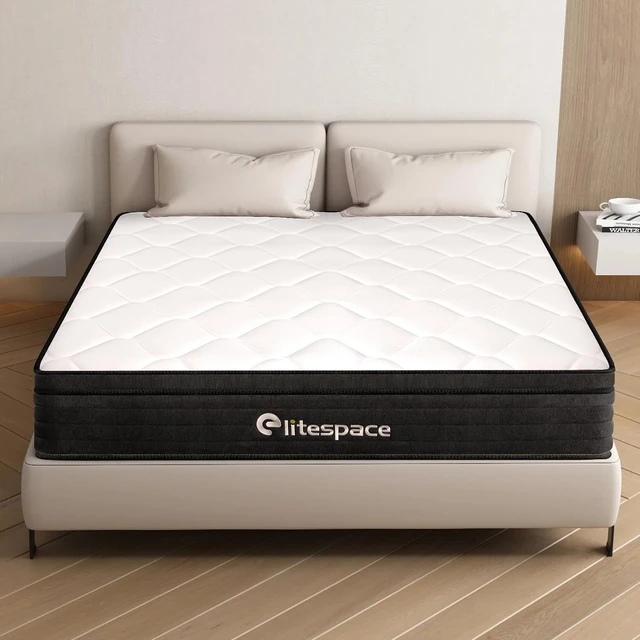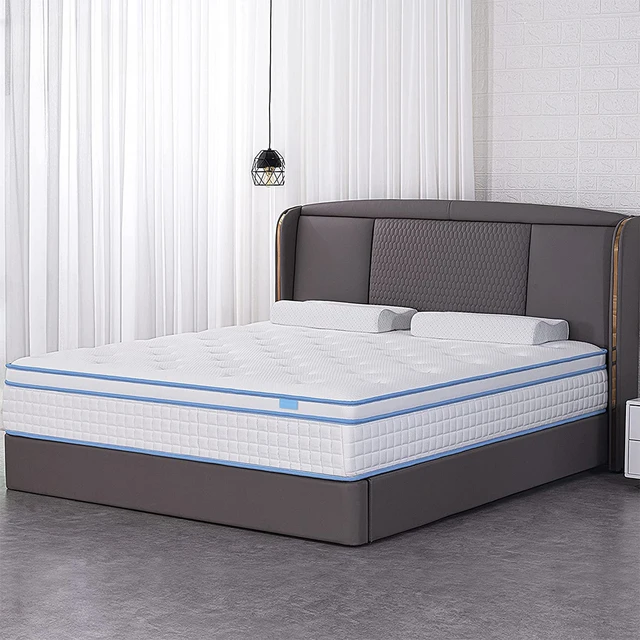Introduction
The weight of a queen mattress can vary depending on various factors such as the materials used, construction type, and brand. Here is a detailed exploration of the typical weight range for queen mattresses and the factors that contribute to their varying weights: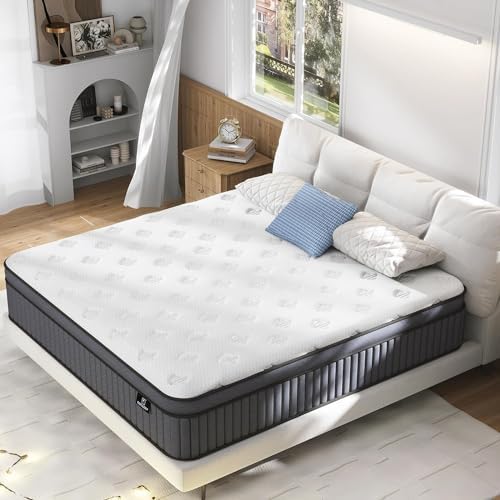
Exploring the Weight of a Queen Mattress:
A standard queen mattress is one of the most popular mattress sizes, offering ample space for individuals or couples while fitting well in most bedrooms. When it comes to weight, queen mattresses can range from approximately 60 pounds to 150 pounds or more, with the average weight falling between 80 to 100 pounds. However, it’s essential to note that these figures are approximate, and actual weights may vary based on the following factors:
1. Mattress Type:
- Innerspring Mattresses: Traditional innerspring mattresses typically weigh more than other types due to the presence of metal coils in the core. The gauge and quantity of coils can influence the overall weight of the mattress.
- Memory Foam Mattresses: Memory foam mattresses are known for their density and weight, especially those with multiple layers of high-density foam. The weight can vary based on the thickness and density of the foam layers.
- Latex Mattresses: Latex mattresses are usually heavier compared to other types, particularly those made of natural latex. The weight of a latex mattress can be influenced by the number of latex layers and their composition.
- Hybrid Mattresses: Hybrid mattresses, which combine elements of innerspring, memory foam, and/or latex, often fall within the mid to higher range of weights due to the mix of materials used in their construction.
2. Mattress Thickness:
The thickness of a queen mattress can impact its weight. Thicker mattresses, especially those with additional comfort layers or specialized technologies like pillow tops or Euro tops, tend to be heavier compared to thinner models with simpler constructions.
3. Materials and Components:
- Comfort Layers: The type and density of materials used in the comfort layers, such as memory foam, latex, or polyfoam, can contribute significantly to the weight of the mattress.
- Support Core: The materials in the support core, whether it’s steel coils in an innerspring mattress, high-density foam, or pocketed coils in a hybrid model, play a crucial role in determining the overall weight of the mattress.
4. Brand and Quality:
Different mattress brands may use proprietary materials or construction techniques that impact the weight of their products. Higher-quality mattresses with advanced features or superior durability may weigh more than budget-friendly options.
5. Size and Dimensions:
While we’re focusing on queen mattresses specifically, it’s worth noting that larger mattress sizes, such as king or California king, will naturally weigh more due to their increased surface area and material requirements.
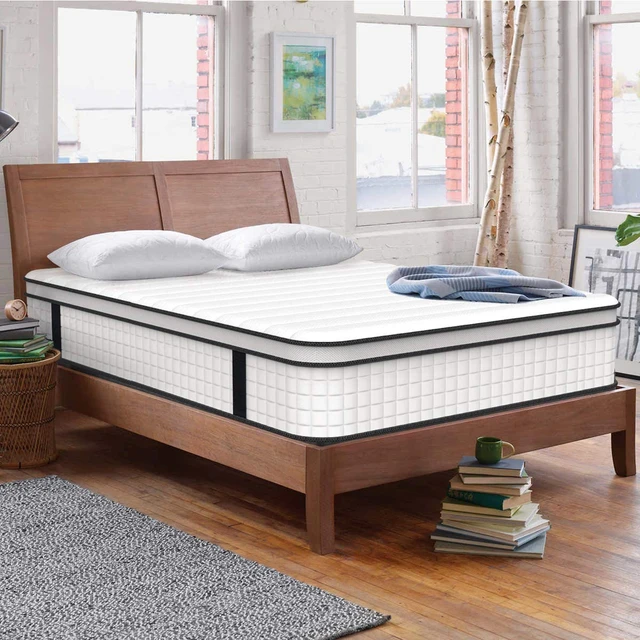
6. Transportation and Handling:
- Moving and Delivery: The weight of a queen mattress is an essential consideration when it comes to transportation and delivery. Heavier mattresses may require additional manpower or equipment to transport them safely, especially if you need to navigate stairs or narrow hallways.
- Installation: When setting up a queen mattress, the weight can influence how easily you can maneuver and position the mattress on the bed frame or foundation. Heavier mattresses may require more effort and coordination during the installation process.
7. Durability and Longevity:
- Sturdiness: In general, heavier mattresses are often associated with better durability and sturdiness. The weight of the mattress can indicate the quality and density of materials used, which can contribute to its long-term performance and structural integrity.
- Sagging and Wear: A heavier mattress may be less prone to premature sagging or wear and tear, as the materials are typically more robust and resilient. This can help maintain the mattress’s shape and support over time, prolonging its lifespan.
8. Maintenance and Care:
- Rotating and Flipping: Some mattresses may benefit from regular rotation or flipping to ensure even wear and prolong their lifespan. The weight of the mattress can impact how easily you can rotate or flip it, especially if it’s a one-sided design or has specific care instructions.
- Cleaning and Air Circulation: Cleaning a heavier mattress, such as moving it for vacuuming or airing it out, may require more effort compared to lighter models. Proper airflow and maintenance are crucial for keeping your mattress fresh and hygienic.
9. Bed Frame Compatibility:
- Weight Capacity: When selecting a bed frame or foundation for your queen mattress, consider the weight capacity of the support system. Heavier mattresses may require a sturdier frame to ensure proper support and prevent damage to the mattress or frame over time.
- Ease of Use: The weight of the mattress can affect how easily it fits onto or within the bed frame. Ensure that the frame is compatible with the weight and dimensions of your mattress to optimize comfort and stability.
10. Personal Preferences and Lifestyle:
- Mobility: If you anticipate moving or rearranging your bedroom frequently, you may prefer a lighter mattress for easier handling and flexibility.
- Sleeping Preferences: Your preferred level of firmness or support may influence the type of mattress you choose, regardless of its weight. Consider factors like comfort, pressure relief, and temperature regulation in addition to weight.
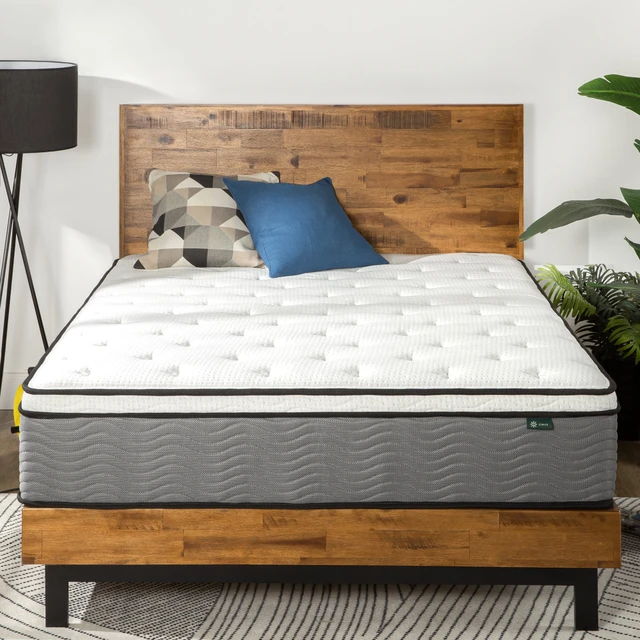
11. Temperature Regulation:
- Heat Retention: Some mattresses, particularly those with memory foam or dense materials, may retain heat more than others. The weight of the mattress can be an indicator of its heat retention properties. Heavier mattresses with more substantial materials may trap heat, affecting sleep quality for individuals sensitive to temperature.
- Breathability: Lighter mattresses with breathable materials or designs may promote better airflow and ventilation, helping regulate temperature and reduce heat buildup during sleep. Consider the mattress’s weight alongside its cooling features to ensure a comfortable sleeping environment.
12. Noise and Motion Isolation:
- Noise Levels: The construction and materials of a mattress can influence noise levels, especially in innerspring or hybrid models with metal components. Heavier mattresses may produce more noise when bearing weight or shifting positions, impacting overall sleep tranquility.
- Motion Transfer: A heavier mattress may offer better motion isolation, reducing disturbances caused by movement from a partner or pet during the night. Consider the weight and composition of the mattress to determine its ability to absorb motion and promote uninterrupted sleep.
13. Eco-Friendliness and Sustainability:
- Materials and Production: The weight of a mattress can reflect the use of eco-friendly materials and sustainable manufacturing practices. Lighter mattresses made from natural or organic materials may prioritize environmental consciousness and reduce carbon footprint compared to heavier, synthetic alternatives.
- Certifications: Look for certifications such as CertiPUR-US, OEKO-TEX Standard 100, or Global Organic Textile Standard (GOTS) to ensure that the mattress meets stringent environmental and health standards, regardless of its weight.
14. Warranty and Returns:
- Handling Requirements: When considering the weight of a queen mattress, factor in any warranty or return policies that involve transporting or exchanging the mattress. Heavier mattresses may pose logistical challenges if you need to initiate a return or service request.
- Manufacturer Support: Verify the manufacturer’s guidelines for handling and care, as improper lifting or moving of a heavy mattress could void warranties or impact coverage for defects or damage.
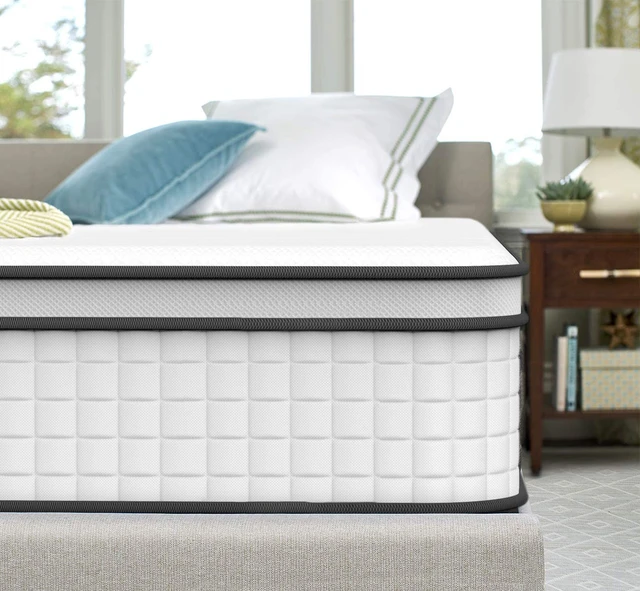
Conclusion:
When considering the weight of a queen mattress, it’s essential to factor in the type of mattress, materials used, thickness, brand reputation, and overall quality. While weight alone may not be a definitive factor in choosing a mattress, it can provide valuable insights into the construction and durability of the product. By understanding the factors that influence the weight of a queen mattress, you can make an informed decision when selecting the right mattress for your comfort and sleeping needs.
